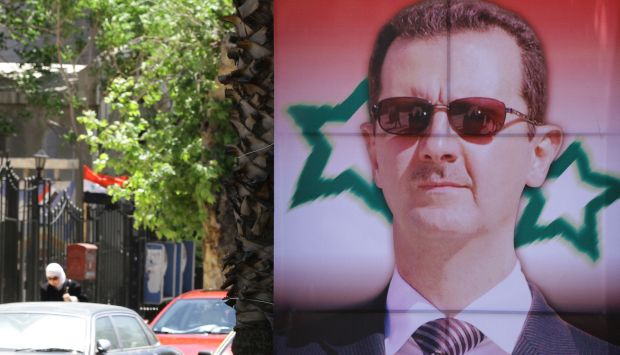Although everything confirms that Tehran’s unflagging support of the regime of President Bashar Al-Assad in Syria is exhausting Iran, there are no real indicators that the country is ready to abandon its position. We have seen nothing to say that Iran wants a genuine political settlement that would lead to a sustainable solution in Syria. Tehran is continuing its military support for the puppet Assad regime in Syria while simultaneously claiming to be ready for what it describes at a “political solution.” However, all of the “political solutions” the Tehran leadership proposes—or claims to be ready to cooperate with—are initiatives to return legitimacy to Assad and his regime, and thus return the state to what it was before the revolution, albeit with a few insignificant cosmetic changes.
The fundamental reason behind Iran’s lack of desire—or inability—to accept and support a true political solution that would realize the demands of both the Syrian people and regional states is that it is well aware that the Damascus “regime” would not function without Assad. The Syrian regime is an “inverted pyramid”—the foundations of this regime are the Assad family and its inner circle. Any true political solution would require getting rid of this foundation and completely collapse the political regime. Iran is not willing to countenance giving up its interests in Syria.
Based on this analysis, Iran would prefer to pay a heavy price by stalling rather than risk a larger loss by accepting a true political solution in Syria. In fact, Iran’s weakening position could force it to take the initiative, moving from being an indirect to direct occupier, explicitly intervening in Syria’s military, politics and security. As has been noted previously, Tehran was the real negotiator behind the Homs cease-fire, for example, not the Assad regime. This is not to mention the direct presence of the Islamic Revolutionary Guard Corps (IRGC) in Syria, as well as other organizations that have been deployed on Iranian orders such as Lebanon’s Hezbollah and Iraqi Shi’ite militias.
So Iran is holding tightly to Assad specifically because it knows that “the regime is Assad” and “Assad is the regime.” This is something that has only served to exacerbate the crisis and prevent solutions in the early stages. Accordingly, the loyalties of the army, the security forces and the regime’s shabiha militias lie with Assad, rather than the Syrian state. This could be seen in the slogans they raised and chanted during the early days of the war, namely that it has to be “Assad or we’ll burn the country down.” This is a position that Iran backs, and worked to bolster for years before the revolution.
Iranian influence in Syria has not been a case of bilateral cooperation between two equals so much as a relationship between master and follower, or creator and creation—the demise of the creation would mean the end of these ties. Moreover, this relationship puts Iran in an increasingly difficult and draining situation, given its inability to develop ties with Syria beyond the Assad family and its inner circle. Today, Iran is finding its options increasingly constrained as a result of this. This situation is forcing Iran to fight a war of attrition to back Assad while simultaneously working to expand its influence and achieve its interests through alternatives within the regime—or even attempting to build new vassals within Syria beyond the Assad family. However, such attempts cannot expect to succeed overnight.
Tehran realizes that, for now, maintaining its strategic interests in Syria depends on the Assad regime. From there, it is proposing new initiatives that aim either to help “legitimize” Assad or, at the very least, buy him more time. Iran is doing this in the hope that it will be able to come up with alternatives that will allow it to re-secure its interests in Syria in the medium to long term. Thus, in the event that Tehran must abandon Assad, it could at least guarantee its interests will be preserved in the future through other political and military organizations and figures. For example, there are reports of attempts to turn the pro-Assad shabiha militia (or the National Defense Force, as the regime likes to call it) into a Syrian version of Lebanon’s Hezbollah.
Talk of a political solution under the current circumstances is suicide for the revolution and those who stand with the rebels unless such a solution is supported by military victories that will force the Iranians to accept a lesser role in Syria. Ultimately, any political solution remains impossible without arming the Free Syrian Army, and thus tipping the scales in favor of Syria’s revolutionaries.
The counterpoint to this article can be read here.
